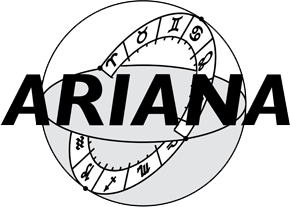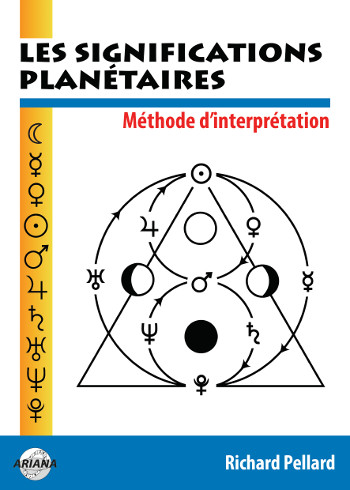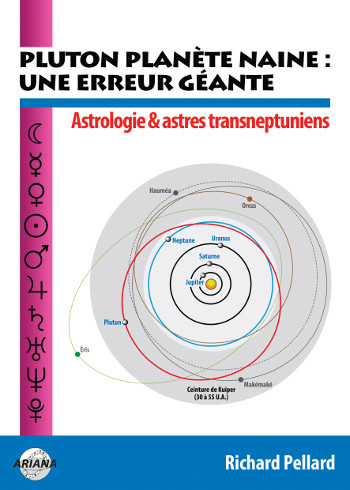Your Planets
Portraits of the Planets
Aspects between Planets
The planetary ages
The planetary families
Planets in Signs
The Planets in comics


Whether you are materialistic or not, whether you have anosmia (loss of sense of smell) or not, it is difficult to completely lose interest in money. It does not always bring happiness, of course (especially that of the poor, as Coluche sang), it does not even always contribute to it… but it has become necessary, indispensable even since the end of the era of barter. Classical astrology places money under the rule of Jupiter, the planet to which, rightly or wrongly, luck and wealth are attributed. So would you have to be born at the rising or at the culmination of Jupiter to become a billionaire? It is safer, Jupiterian or not, to inherit from a wealthy family. Nevertheless, depending on its chart, each has an original relationship to money…
At the beginning of humanity, men were content to exchange products: it was the civilization of barter. Wheat for spices, fish for meat, weapons for jewelry. With the development of travel, these exchanges became more and more numerous and involved ever greater quantities of goods. One day, someone imagined replacing the concrete products of barter with a symbolic value, the currency of exchange.
The first monetary instruments were themselves still concrete objects: bones, furs, shells, beans. The first metallic currencies were born among the Mesopotamians (who also invented writing and mathematics and discovered astronomy and astrology). They were made of lead and first appeared in the form of ingots stamped with symbols representing a specific weight. Gradually appeared coins in gold, silver or bronze, then banknotes thanks to the invention of printing.
For centuries, coins kept a concrete value: at equal weight, a gold coin was worth two silver coins, and these two metals had an intrinsic value because of their rarity. Today, our coins made with inexpensive alloys chosen for their resistance have only an abstract value: it is the number designating the monetary value engraved on them that counts, not the metal from which they are made. Banknotes and bank cards are even more abstract: a rectangle of printed paper or plastic is worth nothing in itself and would be of no use to us for obtaining consumer goods in places where money does not exist (are there any more?).
From an economic point of view, money facilitates and fluidifies relations between people. Thanks to it, there is no longer any need to travel with a ton of corn to exchange it for a kilo of spices: the symbol money weighs less and does the job just as well. Money can be lent with or without interest, stolen, given away, thrown out the window, hoarded, invested, counterfeited, subject to stock market speculation. Nowadays when everything is bought and everything is sold, even consciences, the human species has become more and more ringing… and stumbling (the trebuchet was a small precision scale used to weigh small quantities of precious metals).
If the transition from barter to money has been an effective and indisputable progress in terms of economic exchanges between countries and different civilizations, it is not always the same from a human, moral or spiritual point of view. Ideally, money should only be used for food, housing, clothing and for the rest, men who have become angels would live on love and fresh water… Only a few saints, monks and ascetics have this report frugal and limited to money.
It is that money, however immaterial and elusive it has become, nevertheless exerts a powerful influence on our social relations. Our modern societies are hierarchized according to it: at the top are the rich and the powerful, at the bottom or on the margins the low-income earners and the destitute without power. Our bank account decides our social class, and therefore our meetings, our friendships, our loves. The rich and the poor rarely mix.
Money drives those who have too much or not enough of it crazy and very often envious of those who are between these two extremes. Some just think about it. They collect it to consume prestigious products in abundance, pile it up in chests or increase their power of influence. For a patron or generous donor, how many greedy raptors willing to sacrifice all values to get rich? Money corrupts, it’s in its nature.
In classical astrology, the planet Jupiter is associated with wealth. Those born under a strong influence of Jupiter actually have, more than others, a sense of their material interests, a taste for honours, the need to give themselves the tangible means to appear. A consonant and dominant Jupiter makes people ambitious, pragmatic, good managers; dissonant, it makes them pushy, spendthrift, materialistic.
But it’s not Jupiter’s position in your horoscope that makes you rich or poor. We are rich because we are born rich, we become so because we deploy all the efforts (moral and immoral) necessary to become rich or because we have won the jackpot at the Lotto. We are poor because we were born poor, because we are not good at getting rich or because we do not care, we become poor because of a dismissal, bad management or illness…
In his Tetrabiblos (150 AD), the astrologer Ptolemy does not attribute to any planet the exclusive monopoly on wealth. This appears by Saturn “by means of buildings, navigation and agriculture”, by Jupiter “by guardianship, by the offices of justice and by those which belong to the divine ministry”, by Mars “by the militia and the conduct of armies”, by Venus “by friends or by the favors of women”, by Mercury “by eloquence and by trade”. By adapting this text to contemporary economic conditions, the saturnian enrichment is based on activities that require far-sighted, risky and long-term investments, the jupiterian one by the exercise of prestigious and remunerative social functions, the marsian one by the taste for struggle of self-made men, the venusian and the mercurian ones by skill in social relations.
To each planet, therefore, its relationship to money and its way of experiencing wealth… or poverty. To paraphrase the saying, it is better to be rich, beautiful and healthy even without Jupiter than poor, ugly and sick with a ruling Jupiter… Astrology will never tell you if you will be rich or not, but it will tell you by what means you have the greatest chance (or risk) of becoming one given your initial financial situation, and what relationship you have with money: fascinated with Pluto, fluctuating with Neptune, powerful with Uranus, cautious with Saturn, ostentatious with Jupiter, realistic with Mars, erotic with Venus, casual with Mercury, narcissistic with the Sun or carefree with the Moon.
No sign of the zodiac predisposes to make a fortune. Taurus is theoretically thought to be very self-interested, Virgo stingy, Sagittarius and Leo extravagant. In reality, we meet a lot of prodigal Taurus or stingy Leo. Meagerness or prodigality also depends on the poverty or wealth of an individual: it is easier to be prodigal with a well-filled wallet and to skimp when the end of the month is always difficult…
To become rich, very rich, there is nothing like being a great captain of industry, a CEO of a multinational, a head of a very large company who accumulates attendance fees on the boards of directors of the most profitable companies.
We have brought together the charts of 43 very large French bosses, the top level of French capitalism, to make a statistical study of them: are certain signs of the zodiac, certain planets more often dominant than in the whole of the population?
▶ Planets: The result is indisputably positive for the planets: the very large bosses have a very strong tendency to be born at the peak times (rise, set, culmination) of Jupiter, Pluto and Sun (respectively 58%, 53% and 49%). Six out of ten major bosses have a dominant Jupiter, five out of ten a dominant Pluto or Sun.
Such a result can in no way be due to chance, and all the more so since the three planets that stand out correspond to the results that a wise astrologer could expect and predict. Indeed, Sun, Jupiter and Pluto have in common the taste for power: visible power for the Sun, economic power for Jupiter and occult power for Pluto. This planetary trio signs characters that are both authoritarian and secretive, pragmatic and ruthless, aspiring to strong social recognition (Sun-Jupiter) while giving themselves the means to pull the strings in the shadows (Pluto).
On the other hand, very big bosses tend to “flee” the Moon, Venus and Neptune: less than three out of ten were born during the peak hours of these three planets. Again, nothing surprising: the Moon-Venus-Neptune trio promotes affectivity, feelings and a taste for tranquility. These character traits are not well suited to the business world…
▶ Zodiac: Leo, Scorpio and Aquarius clearly lead the Sun Signs. The scores obtained by these three Signs are even more remarkable when compared to the national average. For demographic reasons, many more individuals are born in spring (and especially under the sign of Taurus) than in autumn (Scorpio is statistically the least numerous). The very big bosses shun the signs of spring and favor the mid-season signs, with the exception of Taurus. These Signs have in common the sense of proportions and balances of power, qualities which are not useless for these individuals… On the other hand, Aries and Pisces are very little represented…
Outside of the Sun Signs, great patterns are born with great frequencies from the Moon in Gemini, Venus in Scorpio, Mercury in Sagittarius, and Mars in Leo. Conversely, they avoid Mars in Gemini and the Moon in Leo.
▶ Houses: according to the rules of classical astrology, House II is that of money, of possessions. She should be over-represented among our group of profit-hungry billionaires. Well, not at all: the score she gets is just below average. On the other hand, Houses III (relationships, communications) and XII (trials, mysteries), and to a lesser extent Houses I (the image of the personality) and XI (friends, projects) carve out the lion’s share. Many modern astrologers doubt the influence or at least the meanings traditionally attributed to the Houses… this can bring water to their mill!
Conclusion: if you were born with Jupiter, Pluto and the Sun (in Leo, Scorpio or Aquarius) in the Ascendant or Midheaven, the Moon in Gemini, Mercury in Sagittarius, Venus in Scorpio, Mars in Leo, the Houses III or XII occupied by many planets; if in addition you come from a great business school, that you were born in a wealthy environment and that you have a taste for business, you have the profile of a very big boss. Glory, power and money are yours if, in addition to your efforts, luck and the economic context smile on you! Conversely, if you were born Aries or Pisces with a dominant Neptune, Moon (in Leo), Venus (in Aries) and an important House V, your parents are poor and you stopped your studies for the studies, you are not well adapted to this world of business sharks. But maybe you prefer to be an artist or a poet?
Article published in issue No. 3 of the Astrologie naturelle (July 1998).

Les significations planétaires
par
620 pages. Illustrations en couleur.
La décision de ne traiter dans ce livre que des significations planétaires ne repose pas sur une sous-estimation du rôle des Signes du zodiaque et des Maisons. Le traditionnel trio Planètes-Zodiaque-Maisons est en effet l’expression d’une structure qui classe ces trois plans selon leur ordre de préséance et dans ce triptyque hiérarchisé, les Planètes occupent le premier rang.
La première partie de ce livre rassemble donc, sous une forme abondamment illustrée de schémas pédagogiques et tableaux explicatifs, une édition originale revue, augmentée et actualisée des textes consacrés aux significations planétaires telles qu’elles ont été définies par l’astrologie conditionaliste et une présentation détaillée des méthodes de hiérarchisation planétaire et d’interprétation accompagnées de nombreux exemples concrets illustrés par des Thèmes de célébrités.
La deuxième partie est consacrée, d’une part à une présentation critique des fondements traditionnels des significations planétaires, d’autre part à une présentation des rapports entre signaux et symboles, astrologie et psychologie. Enfin, la troisième partie présente brièvement les racines astrométriques des significations planétaires… et propose une voie de sortie de l’astrologie pour accéder à une plus vaste dimension noologique et spirituelle qui la prolonge et la contient.
Téléchargez-le dès maintenant dans notre boutique

Pluton planète naine : une erreur géante
par
117 pages. Illustrations en couleur.
Pluton ne fait plus partie des planètes majeures de notre système solaire : telle est la décision prise par une infime minorité d’astronomes lors de l’Assemblée Générale de l’Union Astronomique Internationale qui s’est tenue à Prague en août 2006. Elle est reléguée au rang de “planète naine”, au même titre que les nombreux astres découverts au-delà de son orbite.
Ce livre récapitule et analyse en détail le pourquoi et le comment de cette incroyable et irrationnelle décision contestée par de très nombreux astronomes de premier plan. Quelles sont les effets de cette “nanification” de Pluton sur son statut astrologique ? Faut-il remettre en question son influence et ses significations astro-psychologiques qui semblaient avérées depuis sa découverte en 1930 ? Les “plutoniens” ont-ils cessé d’exister depuis cette décision charlatanesque ? Ce livre pose également le problème des astres transplutoniens nouvellement découverts. Quel statut astrologique et quelles influences et significations précises leur accorder ?
Enfin, cet ouvrage propose une vision unitaire du système solaire qui démontre, chiffes et arguments rationnels à l’appui, que Pluton en est toujours un élément essentiel, ce qui est loin d’être le cas pour les autres astres au-delà de son orbite. Après avoir lu ce livre, vous saurez quoi répondre à ceux qui pensent avoir trouvé, avec l’exclusion de Pluton du cortège planétaire traditionnel, un nouvel argument contre l’astrologie !
Téléchargez-le dès maintenant dans notre boutique